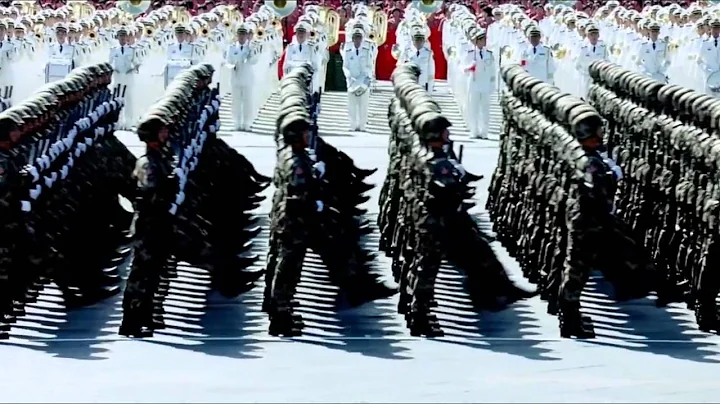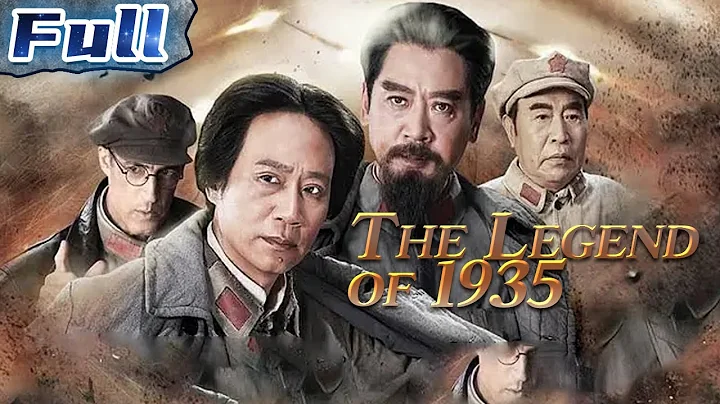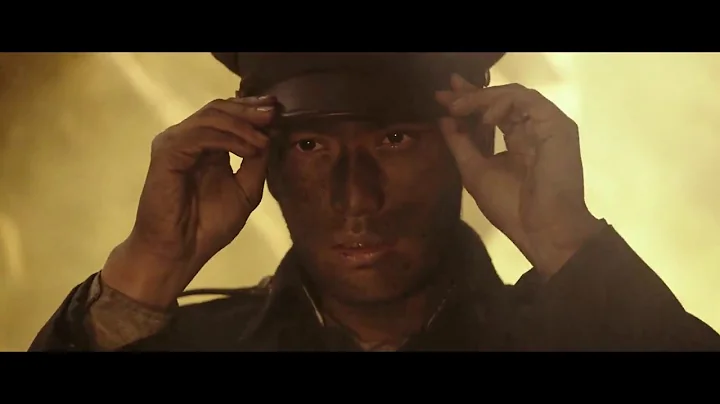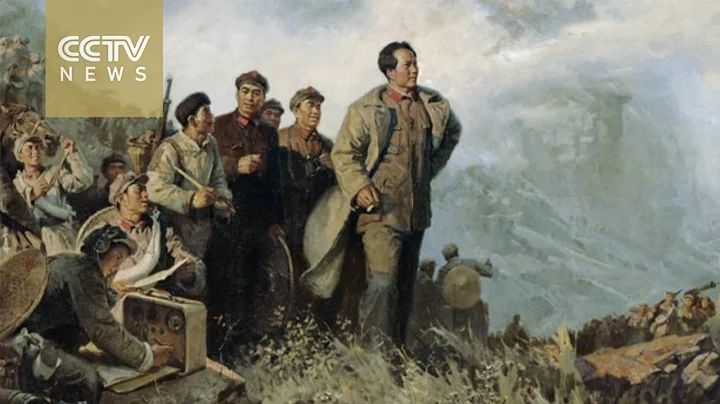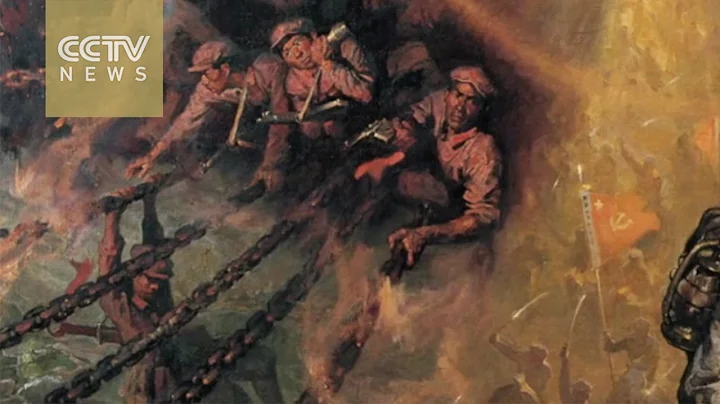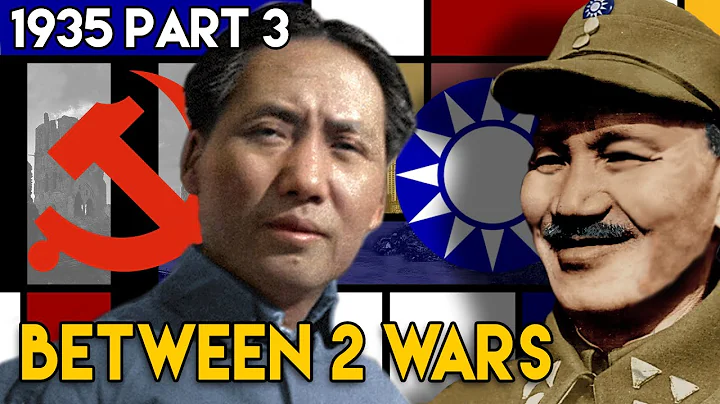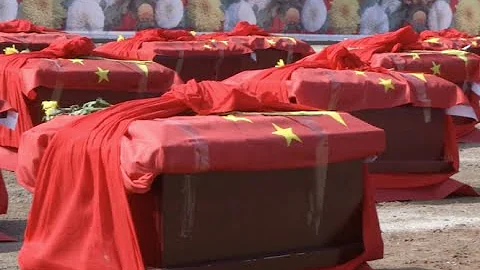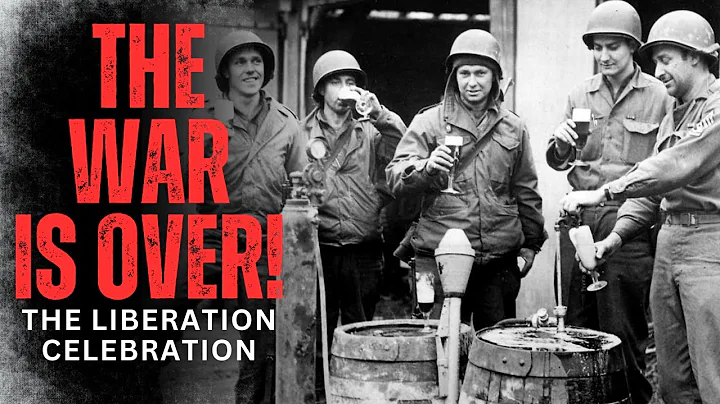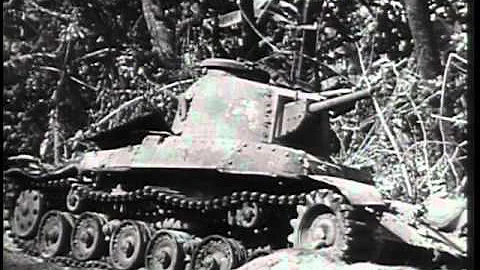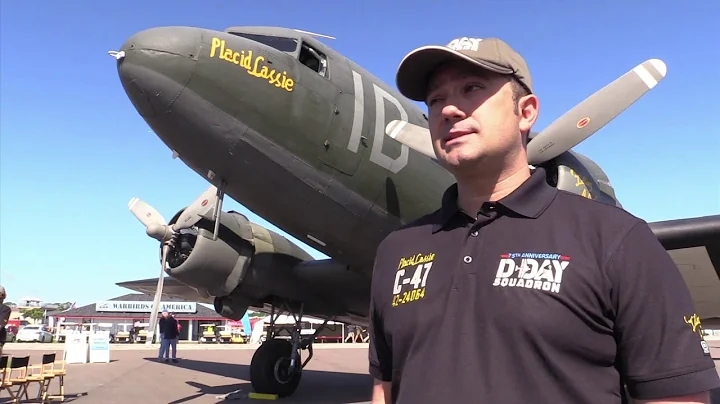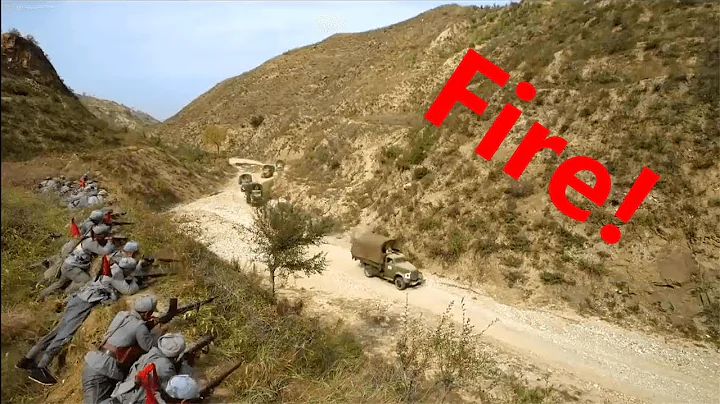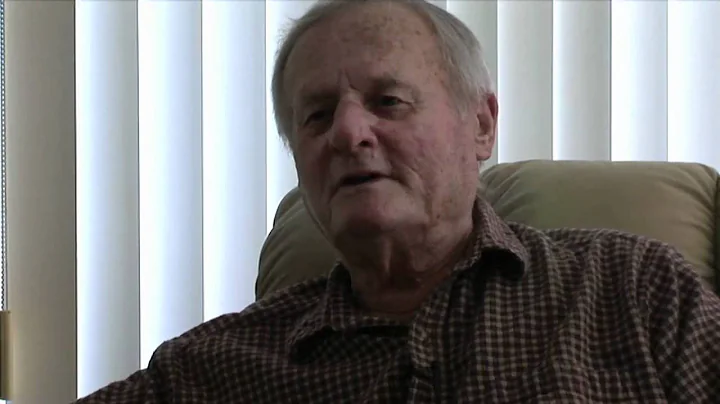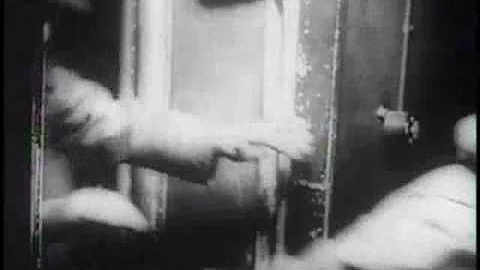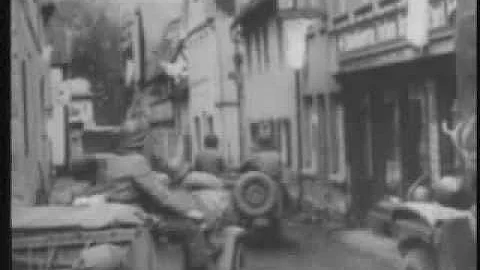Author: Zhou Jianwei
At the end of April 1935, the Red Army crossed the Chishui River and approached Kunming all the way. The Yunnan Army was so scared that the Yunnan Army hurriedly sent more troops to guard Kunming. However, the Red Army, which had just arrived near Kunming, turned northwest and headed straight for the Sichuan-Yunnan chasm - Jinsha River .

Liu Bocheng, as the commander of the Military Commission column, personally led the Third Infantry Battalion of the Cadre Regiment to the Jiaoping Ferry on the south bank of the Jinsha River to organize bridge building in order for the troops to quickly cross the Jinsha River.
Let’s talk about this cadre regiment first. The regiment leader Chen Geng is the founding general of the People’s Republic of China; the captain of the upper cadre team Xiao Jinguang is the founding general of the People’s Republic of China; the political commissar Song Renqiong is the founding general of the People’s Republic of China; the Special Branch Battalion Commander Wei Guoqing is the founding general of the People’s Republic of China; the regiment’s political director Mo Wenye, Regiment branch secretary Fang Qiang, political commissar Liu Daosheng of the first infantry battalion, and political commissar Ding Qiusheng of the second infantry battalion were all founding lieutenant generals. There were three battalion commanders at that time, namely, Commander Li Zhenya of the 1st Battalion, who died in 1948; Commander Huang Yanbin of the 2nd Battalion, who died of illness in 1937; Battalion Commander Lin Fangying of the 3rd Battalion, who died in the Long March Later, he died on the way to the Eastern Expedition.
If these three battalion commanders can live to be awarded the title, they may be rated as lieutenant generals or generals!

Because the soldiers who went out were dressed as recalcitrant soldiers, they soon brought back a man with glasses who claimed to be the secretary of the district office . When the secretary saw Liu Bocheng, who was disguised as a stubborn military commander, he stepped forward and complimented him: "Sir, I am the secretary of the district office. How can I help you?"
Liu Bocheng "pretended" and said: The enemy is coming soon. We are the troops who were ordered to rush to the river to strengthen our defense. Can you help us lead the way to the river tomorrow? When the secretary heard this, he was very happy, thinking that he had become a high-ranking official. As long as he performed well, he would definitely benefit from it.
So he took the initiative to show his courtesy and said: "I heard that the Red Army planned to cross the river from this area. The district office has just received an order from the superiors, asking our district to burn all the ships so that they cannot be used by the Red Army to cross the river."
Liu Bocheng asked: " Has the order been issued? Has the ship been burned? "

The secretary answered truthfully: "Not yet. I still have the order in my hand? I will go to the river with you tomorrow to deliver the order and burn the ship."
Liu Bocheng is hanging. His heart dropped, and he immediately changed his tone and said to the secretary: "There is no need to burn the boat. To tell you the truth, we are the Red Army who want to cross the river. Now you take out the order to burn the boat and wait to lead the way and find the boat." "
After hearing this, the secretary's legs went weak. He thought he could get a high-ranking position, but unexpectedly he became a prisoner of the Red Army. He reluctantly handed over the order to burn the ship to Liu Bocheng.
Although Liu Bocheng unexpectedly intercepted the order to burn the ship, he also felt that the situation was urgent. I also heard that there are only two ferries on the river, and there is a tax bureau on the other side of the river, and the guards are a security team.
In order to avoid long nights and dreams, Liu Bocheng decided to immediately send an advance team to the riverside led by his secretary. The mission is to find a boat for crossing the river, cross the Jinsha River at night, take out the enemy's tax bureau and security team, and set up an outpost for the follow-up troops to cross the river.
Liu Bocheng's prompt decision bought time for the troops. That night, an advance team successfully found two ferries and completed the task of crossing the river. The enemy's security team became prisoners of our army in their sleep.
At dawn, the advance battalion led by Liu Bocheng also arrived at Jiaoping Ferry. It was originally planned that the advance battalion would implement the bridge-building plan, but the actual situation was that the water flow was too fast, and it was impossible to build any form of cross-river channel.
Looking at the rushing river, Liu Bocheng was so anxious that he sweated. In order not to affect the subsequent large forces crossing the river, Liu Bocheng decisively changed the river crossing plan: it was not feasible to build a bridge and cross the river by ferry instead.

But there are currently only two ferries, which is far from enough. The only feasible way is to find more ferries. After the plan was finalized, the troops split up and took only one morning to find five more boats near the upper and lower reaches of the river.To be precise, there are 5 broken boats, all of which were abandoned and unusable in the past. Fortunately, they are all big enough and can still be used with a little repair.
Liu Bo admitted that if these 5 boats were repaired as soon as possible, then the army would have 7 boats available, and there should be no problem in crossing the river. Therefore, troops were organized to repair the ferries, and all five ferries were repaired in one afternoon.
According to the original plan, our Long March army was divided into three branches, crossing the river from Longjiedu, Hongmendu and Jiaopingdu respectively. Liu Bocheng was responsible for opening the channel of Jiaopingdu. Now that the problem of crossing the river at Jiaopingdu has been solved, Liu Bocheng notified one of the main forces to quickly cross the river by boat from Jiaopingdu.
After Commander-in-Chief Zhu learned of the situation on the Jiaoping Crossing side, he informed Liu Bocheng to prepare for the entire army to cross the river from Jiaoping Crossing. The reason is that before the Red Army took control of the Longjie Ferry, all the ferries had been burned by the enemy in advance; General Lin commanded the troops to try their best to build pontoons but failed, which made General Lin scratch his head anxiously; and the Red Army After captured Hongmen Ferry under the command of Mr. Peng, they also failed to find a ferry. Fortunately, through everyone's efforts, a simple pontoon bridge was erected. However, just after a group crossed, the pontoon bridge was washed away and could no longer be repaired. Mr. Peng was also anxious.
Liu Bocheng knew the importance of Jiaoping Ferry and immediately established a river crossing headquarters to personally command the troops to cross the river.

In order to ensure the safe crossing of the river by the large troops, Liu Bocheng instructed Chen Geng to lead a cadre regiment to raid Tong'an Town and seize the enemy garrison point only 20 kilometers away from Jiaoping Crossing. At the same time, Chen Geng was asked to drive the enemy far away at all costs and give the large troops a safe and worry-free environment for crossing the river.
Commander Chen Geng lived up to the heavy trust and used all three battalions of the Cadre Regiment. After a period of hard work, he finally drove away the enemies in Tong'an Town and occupied Tong'an Town.
The Military Commission column originally scheduled to cross the river from Jiaoping Crossing arrived first and crossed the river smoothly. The 3rd Red Army Corps, led by General Peng, quickly transferred from Hongmen Crossing to Jiaoping Crossing. The 1st Red Army Corps was the furthest away from Jiaoping Crossing. , overcame all obstacles and arrived at Jiaopingdu on May 7.

The Long March troops spent nearly a week from May 3 to May 9, using seven wooden boats to transport nearly 30,000 troops across the river day and night. Liu Bocheng played a key role in the reason why the main force of the Red Army could successfully cross the Jinsha River.
First, he personally led a group of cadres to quickly go to Kyaoping Ferry. During the process, he learned that the boat at Jiaoping Ferry had not been burned, so he immediately formed an advance team to occupy the ferry overnight and control the ship; secondly, he actively searched for the ferry, even if it was a broken ship. He let it go and immediately repaired the five broken boats after finding them, which became an important tool for the army to cross the river. Furthermore, he personally served as the commander of the river crossing and directed the army to cross the river in an orderly manner day and night, saving time.
After the main force of the Red Army, including the broken Red 5th Army , all crossed the river, it took a week for the large force sent by Chiang to pursue the Red Army to reach the Jinsha River under the leadership of Xue Yue. At this time, not only could they not even see the shadow of the Red Army, but there was no ferry available, so they could only stop in front of the surging river.
[Deeply delve into the history of war, promote positive energy, welcome contributions, private messages will be replied]
